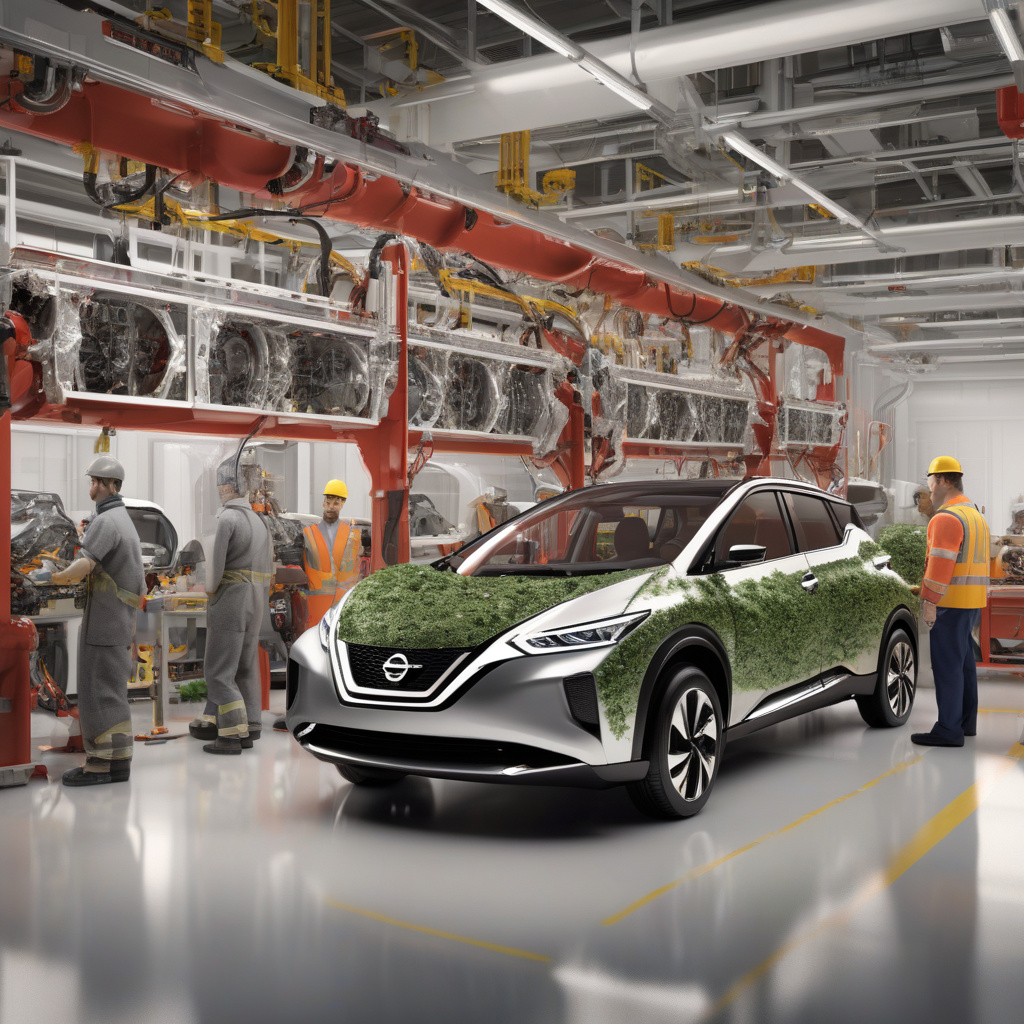Turning Waste to Power: Nissan and Lithion Redefine EV Battery Recycling in Canada
A new recycling initiative in Canada aims to give electric vehicle (EV) batteries a second life, thanks to a groundbreaking partnership between Nissan and Lithion. As the world transitions towards a more sustainable future, finding innovative ways to deal with electronic waste is becoming increasingly crucial. This collaboration between two industry leaders is not only a step in the right direction but also sets a new standard for the entire automotive sector.
The process of recycling EV batteries is not a new concept, but the approach taken by Nissan and Lithion is truly revolutionary. Instead of simply disposing of used batteries, which can be harmful to the environment due to their chemical components, these companies have found a way to extract valuable materials and repurpose them. This not only reduces waste but also lessens the need for mining new resources, ultimately decreasing the carbon footprint of producing new batteries.
One of the key aspects of this initiative is the commitment to a circular economy. By reusing materials from old batteries, Nissan and Lithion are closing the loop on the production cycle and ensuring that resources are utilized efficiently. This approach not only benefits the environment but also makes good business sense, as it reduces costs associated with sourcing new materials.
Moreover, the partnership between Nissan and Lithion is a testament to the power of collaboration in driving innovation. By combining Nissan’s expertise in electric vehicles with Lithion’s knowledge of battery recycling, the two companies have been able to develop a process that is both environmentally friendly and economically viable. This synergy showcases how different organizations can work together towards a common goal, ultimately leading to positive change.
In practical terms, this recycling initiative has the potential to significantly impact the EV market in Canada. As the demand for electric vehicles continues to rise, so does the need for sustainable battery solutions. By offering a reliable and eco-friendly way to recycle EV batteries, Nissan and Lithion are not only meeting this demand but also setting a new industry standard. This could potentially attract more consumers to electric vehicles, knowing that their end-of-life batteries will be handled responsibly.
Furthermore, initiatives like the one undertaken by Nissan and Lithion have far-reaching implications beyond Canada. As the world grapples with the challenges of climate change and resource depletion, finding sustainable ways to manage electronic waste is crucial. By showcasing a successful model for EV battery recycling, these companies are paving the way for a more sustainable future on a global scale.
In conclusion, the partnership between Nissan and Lithion to redefine EV battery recycling in Canada is a significant step forward in the journey towards a more sustainable automotive industry. By turning waste into power, these companies are not only reducing environmental impact but also demonstrating the potential for innovation in the face of pressing challenges. As other organizations take note of this initiative, we can hope to see more collaborations and developments that move us towards a greener, cleaner future.
recycling, sustainability, electric vehicles, innovation, partnership












